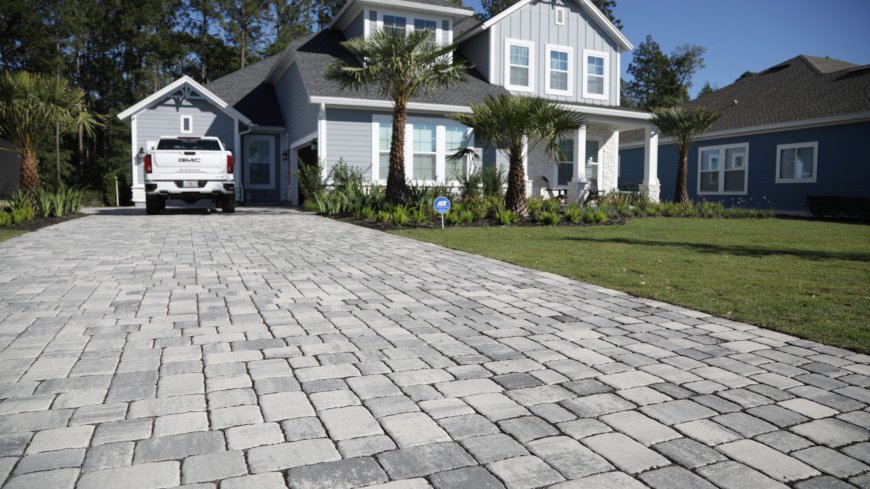What Are the Key Considerations for Paver Driveway Installation?

Installing a paver driveway can significantly enhance the curb appeal of your home while providing a durable surface for vehicle access. In Orange Park, the use of quality pavers is a popular choice due to their aesthetic appeal and long-lasting performance. However, successful driveway installation requires careful planning and consideration of several factors. Here are the key considerations to keep in mind when installing a paver driveway.
1. Design and Planning
Before diving into the installation, it’s crucial to plan the design of your driveway. Consider the layout, size, and shape that will best complement your home’s architecture and landscape.
-
Shape: Decide if you want a straight, curved, or circular driveway. Curved designs can add visual interest but may require more pavers and careful planning.
-
Size: Ensure that the driveway is wide enough to accommodate your vehicles comfortably while considering any additional space for pedestrians.
Once you have a design in mind, sketch it out or use design software to visualize how it will look.
2. Material Selection
Choosing the right type of pavers is vital for the success of your driveway installation. Pavers come in various materials, including concrete, brick, and natural stone. Each material has its own benefits:
-
Concrete Pavers: Durable and available in numerous colors and shapes, concrete pavers are a popular choice for modern designs.
-
Brick Pavers: Known for their classic aesthetic, brick pavers can add charm to traditional homes.
-
Natural Stone Pavers: For a more upscale look, natural stone pavers are unmatched in beauty, though they may come at a higher price point.
Select materials that not only fit your design vision but also can withstand the climate and usage in your area.
3. Drainage Considerations
Proper drainage is critical for any driveway installation. Poor drainage can lead to water pooling, erosion, and ultimately, damage to the driveway. Here are some tips for ensuring effective drainage:
-
Slope: Your driveway should be slightly sloped to direct water away from the garage and home. A slope of 1-2% is usually sufficient.
-
Incorporate Drainage Systems: Consider installing drains, French drains, or permeable pavers that allow water to flow through and reduce runoff.
Ensuring proper drainage will extend the lifespan of your driveway and maintain its appearance.
4. Base Preparation
The foundation of your paver driveway is key to its longevity. A well-prepared base will prevent settling and shifting. Here’s what to do:
-
Excavation: Dig down to a depth of at least 6-8 inches, depending on the soil type and expected load.
-
Base Material: Fill the excavated area with crushed stone or gravel, compacting it in layers to create a stable foundation. This base should also allow for drainage.
A solid base is essential for preventing future problems with your driveway.
5. Maintenance
Even after installation, some maintenance will be required to keep your paver driveway in optimal condition. Regularly check for weeds, clean the surface, and reseal pavers if necessary.
A little maintenance can go a long way in preserving the beauty and functionality of your driveway.
Driveway installation can enhance your home’s value and curb appeal, but careful consideration is necessary throughout the process. From thoughtful design and material selection to effective drainage and base preparation, each step plays a crucial role in achieving a successful installation. By keeping these key considerations in mind, you can create a beautiful and durable driveway that meets your needs for years to come.

 ScapesofNorthFlorida
ScapesofNorthFlorida